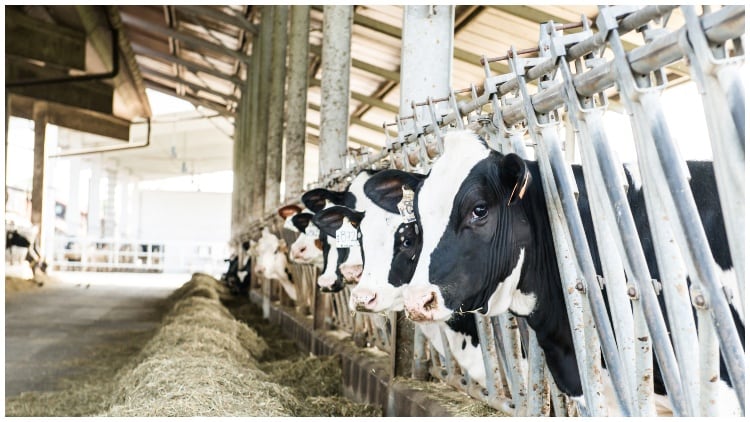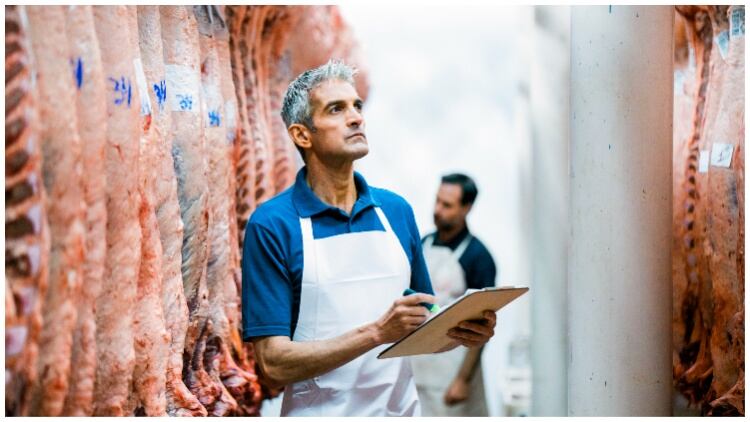While food safety was once the primary concern among the public, this has now been overtaken by animal welfare. The rise of veganism is one particular driver for this change, alongside a political agenda that is leading to closer examination of UK animal welfare standards.
While the Food Standards Agency (FSA) has a permanent presence at abattoirs, farms are not exempt from official visits. Unexpected inspections from Trading Standards on farms can arise because of reports – usually from the public or organisations such as the RSPCA.
Following an allegation of an animal welfare breach, any official visit to check compliance will be prompt and thorough which means that being calm and prepared is vital. With reports becoming more common and the recurrent lack of accurate interpretation and enforcement of regulations by Trading Standards, understanding the process and seeking legal support at the right time can help ensure the best outcome.
What to expect and what to do if Trading Standards visits
If a report claims unnecessary or avoidable pain, distress or suffering – which is a criminal offence – an often-unannounced visit will usually take place as soon as possible after a report is received and a Trading Standards Officer (TSO) will request to see the animal/s.
The TSO may be accompanied by a vet to carry out an assessment. They also have power of entry so may inspect farms without the owner, caretaker of the animals, or anyone else present. It is important to note that refusal of entry could be viewed as obstructing an officer, which is also a criminal offence.
During the visit, the TSO will inspect the animals, the animals’ environment such as the buildings and fields in which they are being kept, and livestock transport. The TSO will also check items including movement records and veterinary and medicine books.

For farmers present at the time of the visit, it is important that they accompany the TSO during the inspection and contact their veterinary surgery to see if a vet can join them. If no one is available at the time, it is important to have a vet attend the farm as soon as possible after the visit. This will serve as contemporaneous evidence of the state of the animals at the time of the visit.
During the visit, it is also useful for the farmer to take his own photographs and videos. Again, this will serve as timely evidence of the condition of the animals and their environment.
All documents that are given to farmers by the TSO during the visit must be kept and if the TSO requests documents, then copies of these should be made before handing them over. The farmer should, so far as is possible, make a contemporaneous note of everything that is said and done during the visit. If this is not possible during the visit, a written record should be made immediately thereafter.
Key pointers for a visit
Here are some key recommendations should you have a visit:
- Ensure the necessary checks and procedures are in place, with paperwork to back these up.
- Ensure all relevant documents are in order.
- Stay calm during a visit, even if the visit seems entirely unwarranted – which sadly is a common occurrence.
- Engage with the TSO and never be obstructive.
- Contact the farm vet to attend the visit or as soon as possible thereafter, even if the visit seems to have gone well or the TSO implies there is no problem.
- Keep a contemporaneous record of the visit including notes, photographs and video evidence.
The aftermath of a Trading Standards visit
Following a visit, farmers will be sent a letter to confirm the findings of the inspection. Sometimes, this will be a more detailed repeat of what the TSO has handwritten during the visit. Other times, the letter will include points that are completely unexpected. Where the TSO believes it is necessary, enforcement action will be taken.
Local authorities have a range of enforcement powers available depending on the severity of the alleged animal welfare issue. For a low-level breach, the TSO will issue a statutory notice detailing the steps that the farmer must take to improve the welfare of their animals. In more serious cases, the local authority has the power to seize the animals, apply to the court to make an order to transfer ownership – an application made under Section 20 of the Animal Welfare Act 2006 – or initiate prosecution. If the local authority decides to prosecute and is successful, this may have a range of consequences, including the loss of animals, a ban on the possession of animals, a fine, or even a custodial sentence.
The most common alleged welfare breaches on farms are poor or inadequate nutrition, insufficient level of care, or inadequate housing conditions. Allegations of inadequate housing often result from the use of old sheds in breach of the current rules.
The future of animal welfare
Despite the Animal Welfare (Kept Animals) Bill being dropped earlier this year, the provisions it contained are set to be introduced separately under individual pieces of legislation. There is currently no timeline for the introduction of these changes.
In the meantime, farmers should utilise the government’s Animal Health and Welfare Pathway, which aims to push forward and support the gradual and continual improvement in farm animal health and welfare.




